Discover 7 hidden attractions, cool sights, and unusual things to do in Ewing (United States). Don't miss out on these must-see attractions: Lake Ceva, Trenton Bath House, and The College of New Jersey. Also, be sure to include Wilburtha in your itinerary.
Below, you can find the list of the most amazing places you should visit in Ewing (New Jersey).
Table of Contents
Lake Ceva
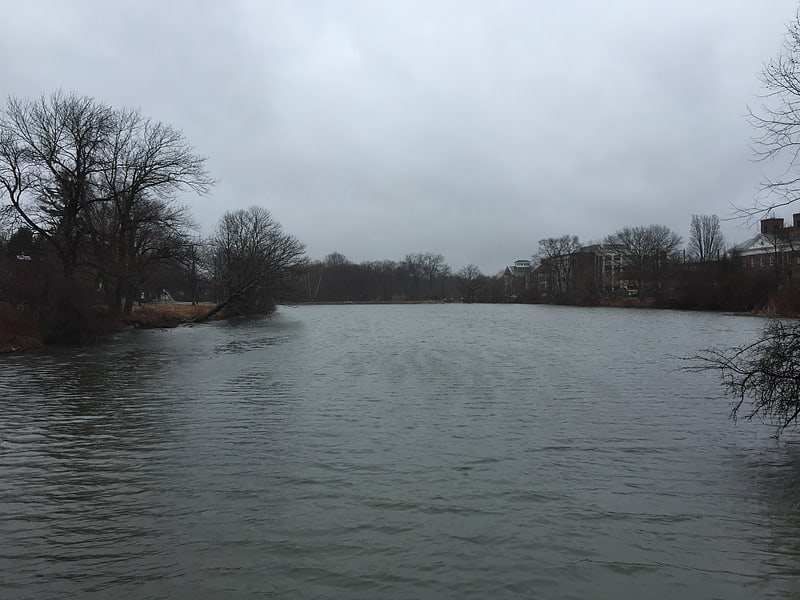
Lake Ceva is a 6-acre man-made lake near the Shabakunk Creek on the campus of The College of New Jersey in Ewing Township, Mercer County, New Jersey, United States. The lake was created when an earthen dam was constructed across a small tributary of the Shabakunk in the 1920s by a local landowner, prior to the construction of the current college campus. The lake is adjacent to Lake Sylva, and together the two lakes are the basis of the name of the Hillwood Lakes section of Ewing.[1]
Trenton Bath House
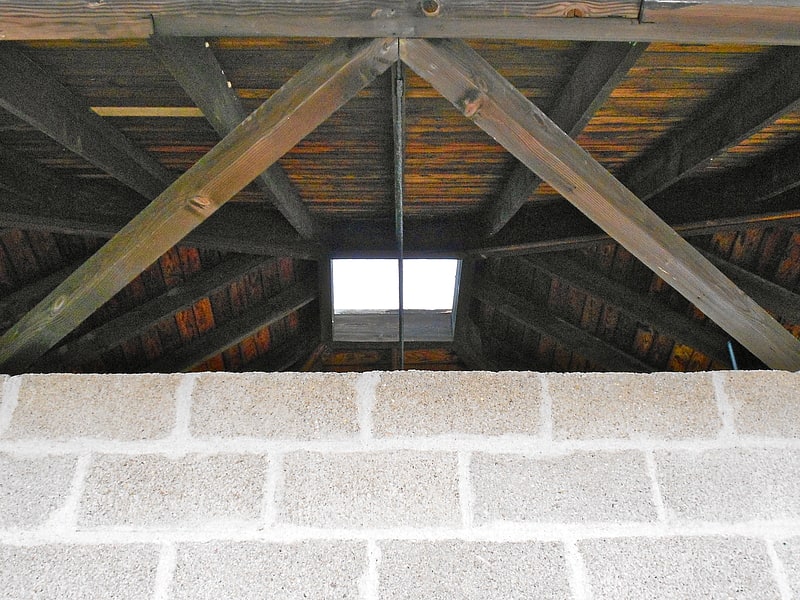
Historical landmark in Ewing (unincorporated community), New Jersey. The Trenton Bath House is a pivotal, influential design by the architect Louis Kahn, with the help of his associate, renowned architect Anne Tyng, at 999 Lower Ferry Road, Ewing Township, Mercer County, New Jersey, United States. It was listed in the National Register of Historic Places in 1984.
It is neither in Trenton, New Jersey, nor is it a bath house, but the so-called "Trenton Bath House" commands attention from architectural historians around the world. Designed as part of a larger plan (never executed) for the Jewish Community Center of the Delaware Valley, the "bath house" opened in 1955 and served as the entrance and changing area for patrons of an outdoor swimming pool.
From a design perspective, the bath house actually appears as a simple cruciform—four square concrete block rooms or areas, surrounding an open atrium. Each of the rooms is topped by a simple, wooden rectangular pyramid. At the corner of each room there is a large, open rectangular column that supports the roof. However, closer inspection reveals that in addition to the pure design elegance, Kahn also clarified his thinking about the utilitarian purposes of the various spaces, and it was in this building that he first articulated his notion of spaces serving and spaces served.
Kahn often spoke of this project as a turning point in his design philosophy, "From this came a generative force which is recognizable in every building which I have done since."
On August 10, 2006, Mercer County and Ewing Township purchased the bath house from the Jewish Community Center for $8.1 million, using funds from the Open Space Preservation Trust Fund. This action ensures that the historic integrity of the bath house will be protected. Ewing plans to use the main J.C.C. building as a senior citizens center. The J.C.C. had planned to move to a new 80-acre (320,000 m2) site located on Clarksville Road in West Windsor Township, but funding ran out.[2]
The College of New Jersey
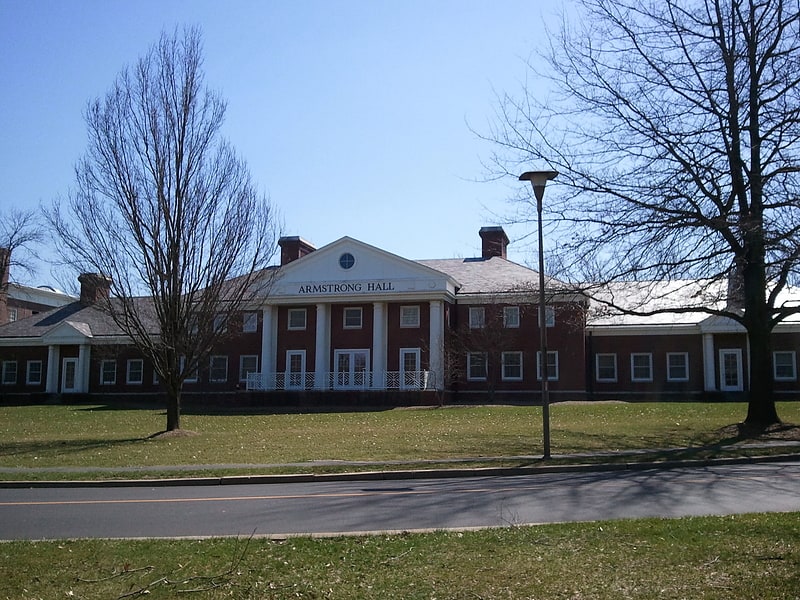
Higher educational institution in Ewing (unincorporated community), New Jersey. The College of New Jersey is a public university in Ewing Township, New Jersey. It is part of New Jersey's public system of higher education. TCNJ was established in 1855 as the New Jersey State Normal School. The institution was the first normal school in the state of New Jersey and the fifth in the United States. Originally located in Trenton proper, the college was moved to its present location in adjacent Ewing Township during the early to mid-1930s. Since its inception, TCNJ has undergone several name changes, the most recent being the 1996 change to its current name from Trenton State College.
The institution is organized into seven schools, all of which offer bachelor's degree programs and several of which offer targeted master's degree programs. Emphasis is placed on liberal arts education via the college's general education requirements. Much of TCNJ is built in Georgian colonial revival architecture style on 289 tree-lined acres.[3]
Address: 2000 Pennington Rd, 08618 Ewing
Wilburtha
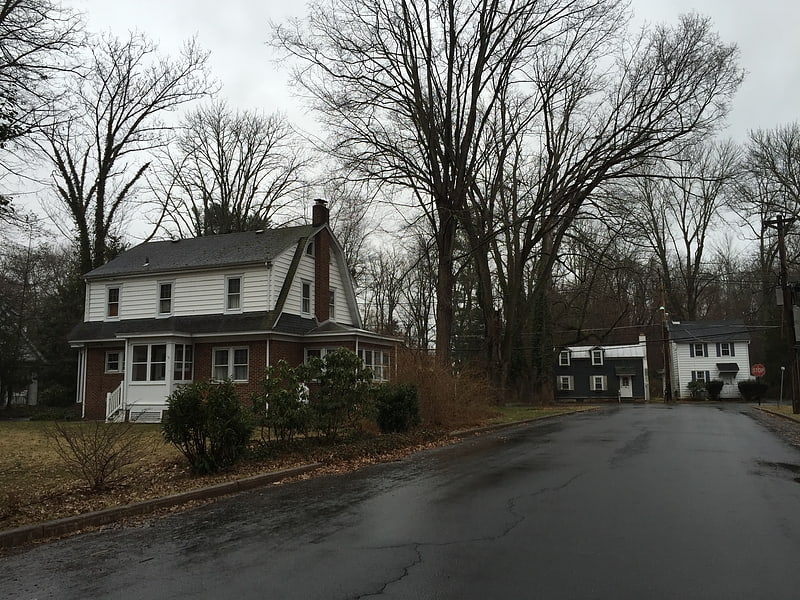
Residential neighborhood in Ewing (unincorporated community), New Jersey. Wilburtha is a section of Ewing Township in Mercer County, New Jersey, United States. Located where Wilburtha Road crosses the Delaware and Raritan Canal, it is one of the oldest settlements in Ewing Township and developed due to the construction of the canal in the early 19th century. The community was known as Greensburg before adopting its current name in 1883. The Yardley–Wilburtha Bridge once connected Wilburtha to Yardley, Pennsylvania on the other side of the Delaware River. The Belvidere Delaware Railroad once passed through the village. Today, Wilburtha is primarily a residential neighborhood consisting of detached, single-family homes, the majority of which were built in the 1950s through the early 1980s. There are still many Georgian and Federal-style homes found in the area.[4]
Ewingville
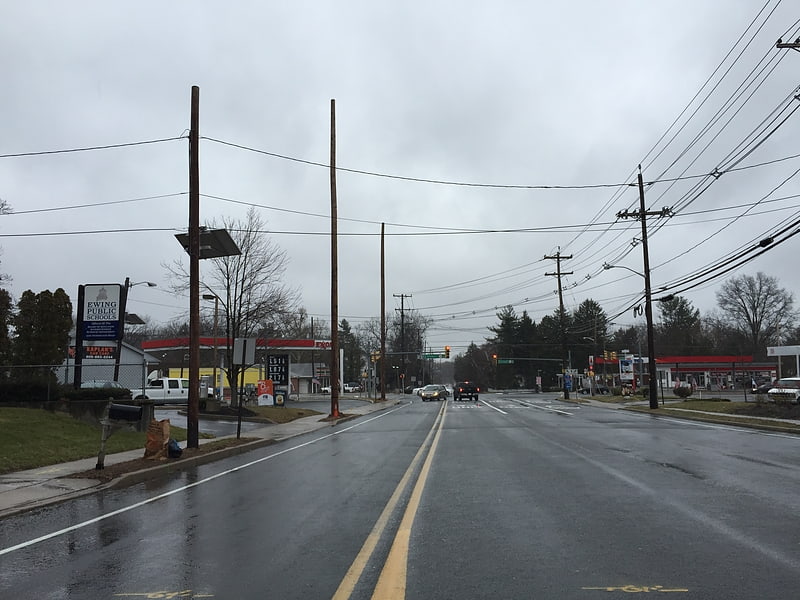
Ewingville is a section of Ewing Township in Mercer County, New Jersey, United States originally settled as a village on Shabakunk Creek. Located at the intersection of Ewingville Road/Upper Ferry Road and Pennington Road, it is one of the oldest settlements in Ewing Township and dates back to the 18th century. The community was known as Cross Keys before adopting its current name in 1836, two years after the incorporation of Ewing Township in 1834.[5]
Preferred Care at Mercer
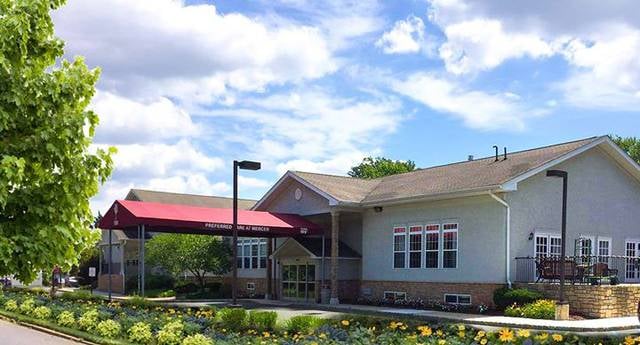
Address: 1201 Parkway Avenue, Ewing
William Green House
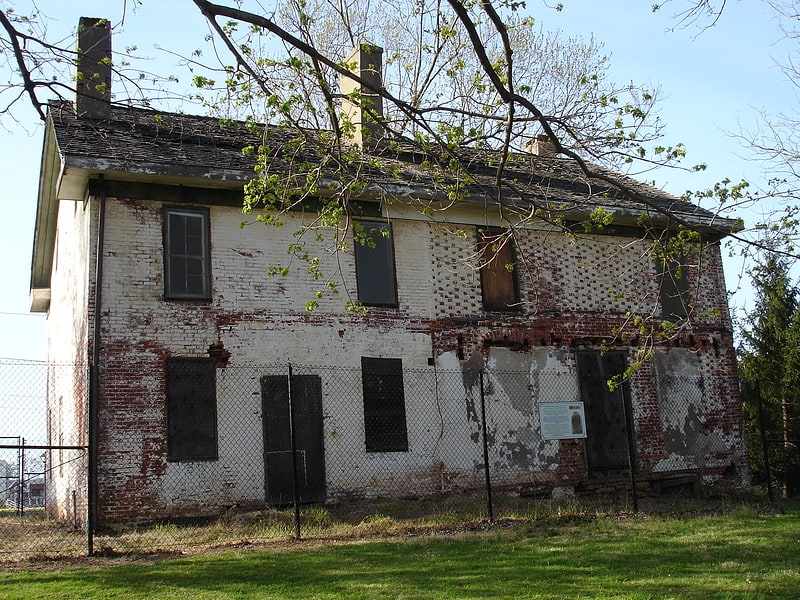
The William Green House is a historic farmhouse in Ewing Township, New Jersey. The first home on the site was built in the last decade of the 17th century. According to a privately published family monograph, the farmhouse was the home of Judge William Greene, who was born in the 1600s in England and died in 1722 in Hunterdon County, New Jersey. The oldest parts of the current structure date to 1717 and the newest to 1830. The house is owned by the College of New Jersey but is in a poor state of repair. It has been considered an endangered historic site for over 40 years and, despite efforts taken by the college in 2006 to shore up the structure, was listed in 2015 as one of New Jersey's 10 most endangered historic sites by Preservation New Jersey.[6]